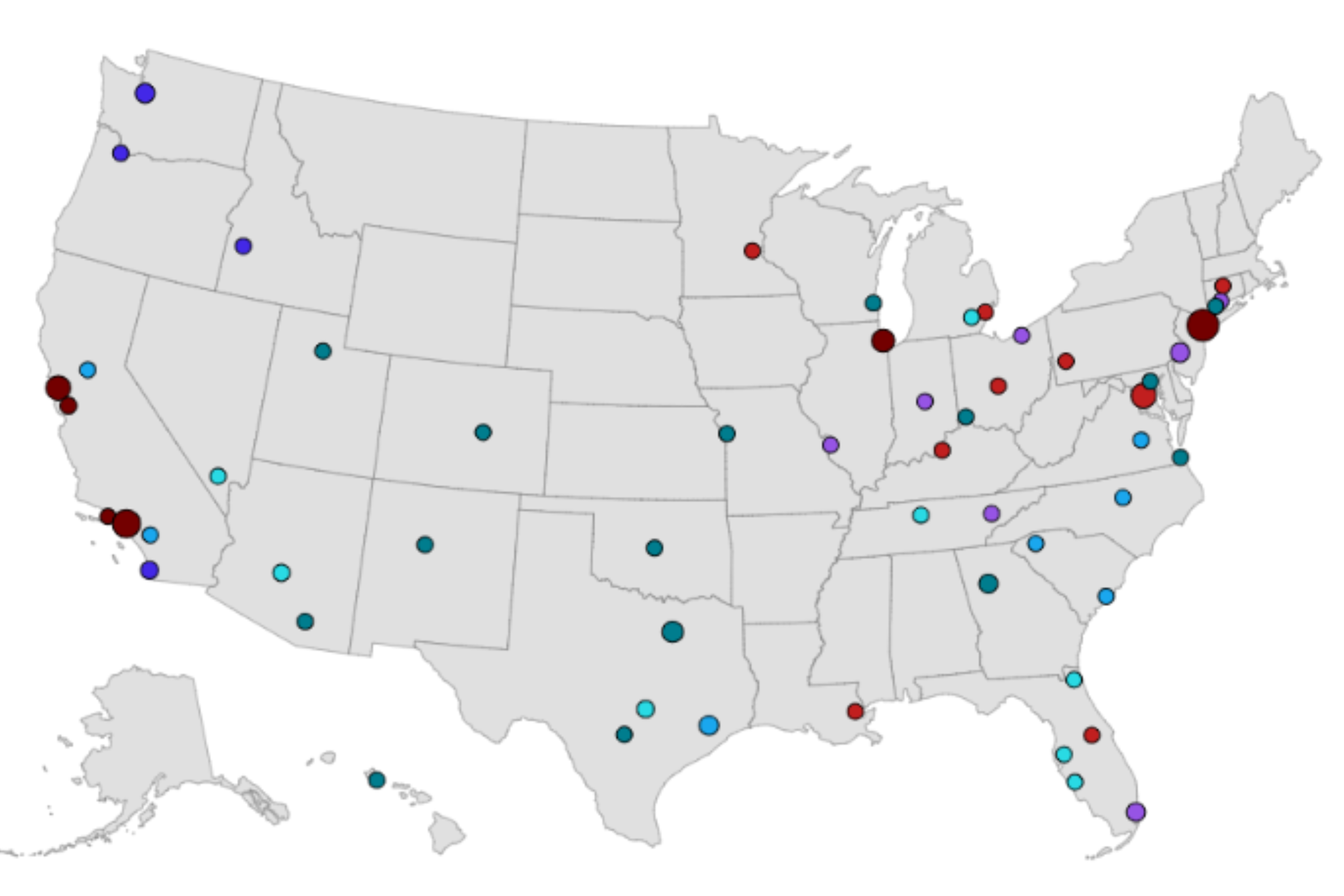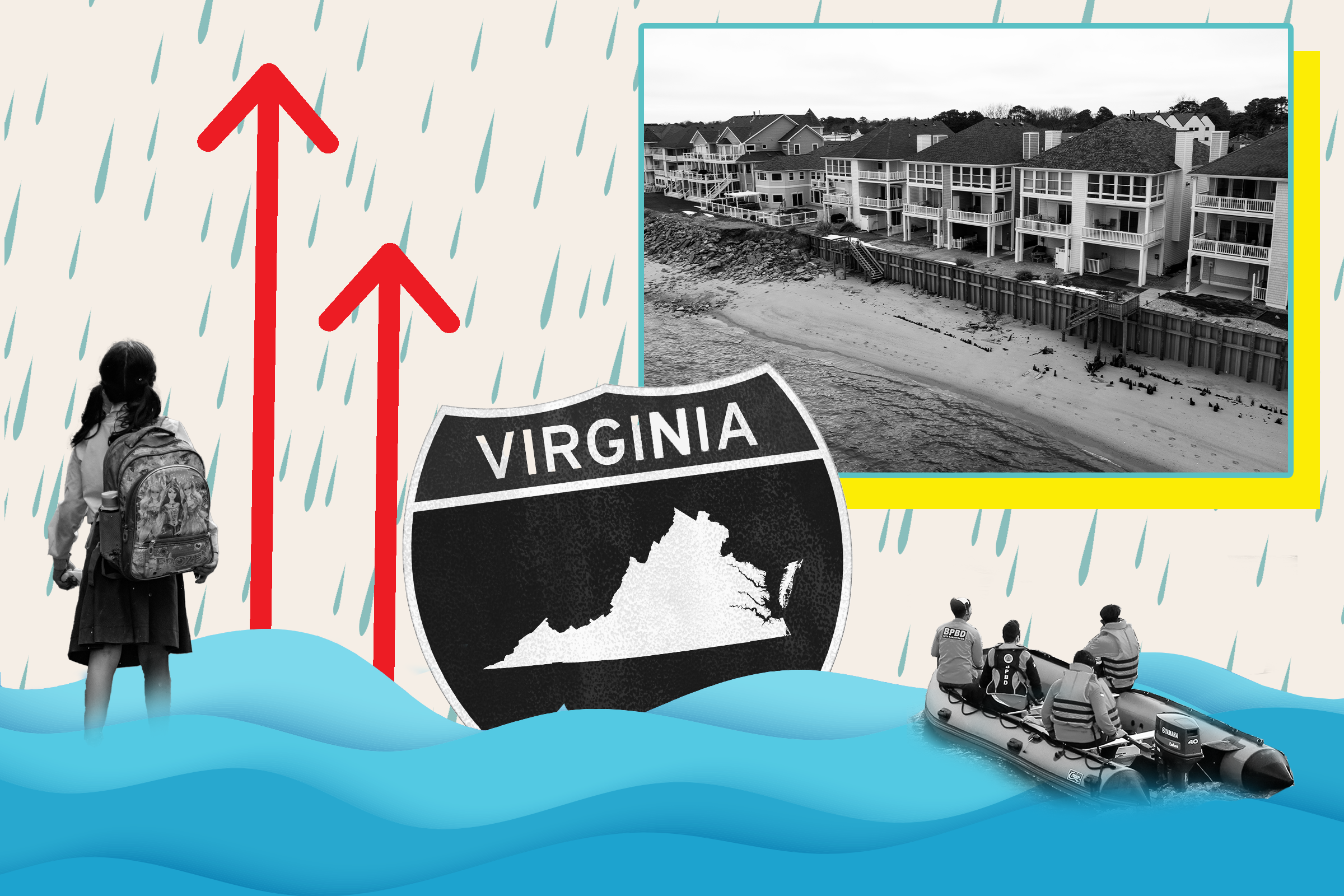As Japan prepares to host a powerful group of Western democracies next week, Tokyo is pursuing its largest military build-up since World War II. The resurgent Asian power wants to use the summit as an opportunity to discuss threats to global security in the region and beyond.
"I think it's a unique moment in history, I think it's a turning point in several ways," one Japanese official told Newsweek of the context surrounding the Group of Seven (G7) gathering to be held in the Japanese city of Hiroshima from May 19-21.
The meeting will bring Japan together with fellow G7 members Canada, the European Union, France, Germany, Italy, the United States and the United Kingdom, alongside African Union chair Comoros, Association for Southeast Asian Nations (ASEAN) chair Indonesia, G20 chair India, as well as Australia, Brazil, South Korea and Vietnam.
But perhaps even more significant than the impressive list of participants is the location itself.
Hiroshima was the first city, and one of only two in history alongside Nagasaki, to be ravaged by atomic warfare as the U.S. brought a fiery end to World War II in August 1945. The Japanese official recalled this "tragic history," saying the summit now serves as "a reminder that the world and the people have been wise enough not to use nuclear weapons for the 77 years since Hiroshima."
"We want to keep it that way," the Japanese official added.
This streak is far from guaranteed, however, and the Japanese official pointed specifically to the conflict in Ukraine, where "Russia's aggression, actually, in my opinion, it's worsening, playing the rhetoric of nuclear usage."
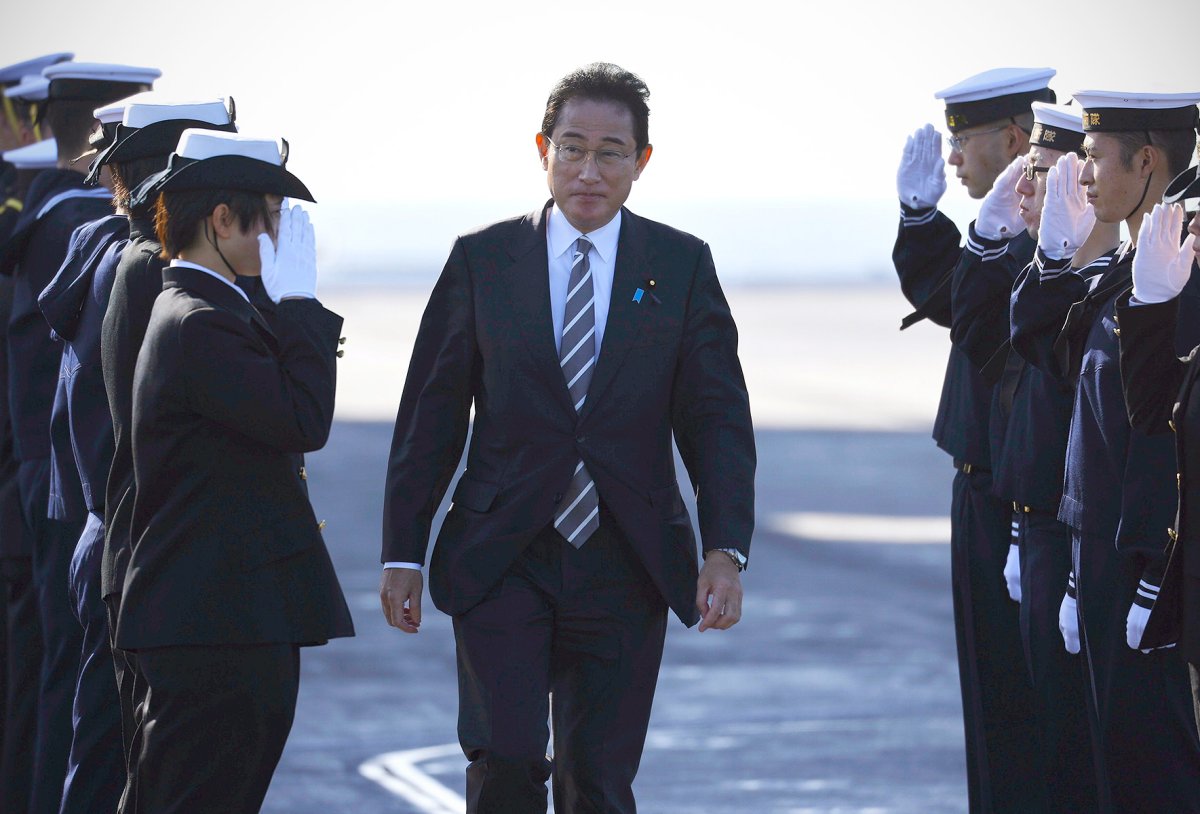
At a time when Moscow has continued to enjoy robust relations with a number of countries across Asia, Tokyo has increasingly voiced its condemnation of the war launched by Russia in Ukraine in February 2022. Japanese Prime Minister Kishida Fumio made a surprise trip to Kyiv this past March to demonstrate solidarity with Ukrainian President Volodymyr Zelensky.
The Japanese official described the Russian war effort as "fundamentally against" the concept of an international rules-based order, often touted by the U.S. and its allies as the cornerstone of the global vision championed by Western powers since the end of World War II.
Japan and the U.S. have long overcome their past-century feud to forge a robust alliance, but the world's deadliest conflict to date lives on for Moscow and Tokyo, as they have yet to sign a peace treaty due to a disputed set of northern Pacific islands under Russian administration.
And while the Russia-Ukraine war has demonstrated how clashes over rival Cold War-era perceptions of the world order continue to play out to deadly effect in Europe, Japan has also welcomed a greater U.S. focus closer to home in the Asia-Pacific region.
It was former Prime Minister Abe Shinzo who helped bring the term "Indo-Pacific" to use back in 2007, as he ultimately coined the term "Free and Open Indo-Pacific" (FOIP) to apply the international rules-border order concept to the region. Both phrases have been readily adopted by the U.S., which renamed U.S. Pacific Command to Indo-Pacific Command in 2018, as well as the Quadrilateral Security Dialogue comprising the U.S., Australia, India and Japan.
Today, Japan views threats from both China and North Korea in its part of the world as especially existential.
Beijing's rapid military rise has coincided with an uptick in encounters near a set of disputed islands under Japanese control in the East China Sea, as well as accelerated People's Liberation Army military exercises and missile tests. Pyongyang has also pressed forward with nuclear-capable assets and has fired missiles near and even over Japanese territory.
"The Indo-Pacific is the very region that leads global growth in the future, but faces various security and economic challenges," the Japanese official said. "So, we should demonstrate our commitment to FOIP."
For Japan, demonstrating this commitment has manifested in unprecedented changes to the military doctrine of a country that remained officially pacifist under the U.S. nuclear umbrella for six decades.
The shift began under Abe, who set out to expand the role of the Japan Self-Defense Forces, and was further carried out by his successor, then-Prime Minister Suga Yoshihide. Now, under Kishida, the third leader in more than a decade of Liberal Democratic Party rule, groundbreaking advances were achieved in his approval of three historic documents last December, an event that was praised by the U.S.
"We welcome the release of Japan's updated strategy documents—the National Security Strategy, National Defense Strategy, and Defense Buildup Program—which reflect Japan's staunch commitment to upholding the international rules-based order and a free and open Indo-Pacific," U.S. Secretary of Defense Lloyd Austin said in a statement at the time.
As Chinese President Xi Jinping often speaks of "great changes unseen in a century" in the global order, the new Japanese National Security Strategy begins by declaring that "the international community is facing changes defining an era." The document makes reference to Russia in both its conflict in Ukraine and activities near the disputed border with Japan, but it particularly defines the perceived threat posed by China.
"China has intensified its attempts to unilaterally change the status quo by force in the maritime and air domains including in the East and South China Seas, such as its intrusions into the territorial waters and airspace around the Senkaku Islands," the document reads, "and has expanded and intensified its military activities that affect Japan's national security in the Sea of Japan, the Pacific Ocean, and other areas as well."
"Furthermore," the Japanese National Security Strategy adds, "China is strengthening its strategic ties with Russia and attempting to challenge the international order."
Kanehara Nobukatsu, a longtime Japanese diplomat who served as the first-ever deputy secretary-general of the National Security Secretariat among other high-level positions under Abe, argued that it was the mutual responsibility of Tokyo and Washington to maintain order in the region in the face of this precarious geopolitical environment.
"The peace and stability of the Northwest Pacific is the responsibility of Japan and the U.S.," Kanehara told Newsweek. "The extraordinary military buildup of China, whose economic might has become three times bigger than Japan, and whose military budget has become five times bigger than Japan, and North Korean nuclear weapons development push Japan to cope with them."
"That is the reason why PM Kishida decided to double the defense budget," Kanehara added.
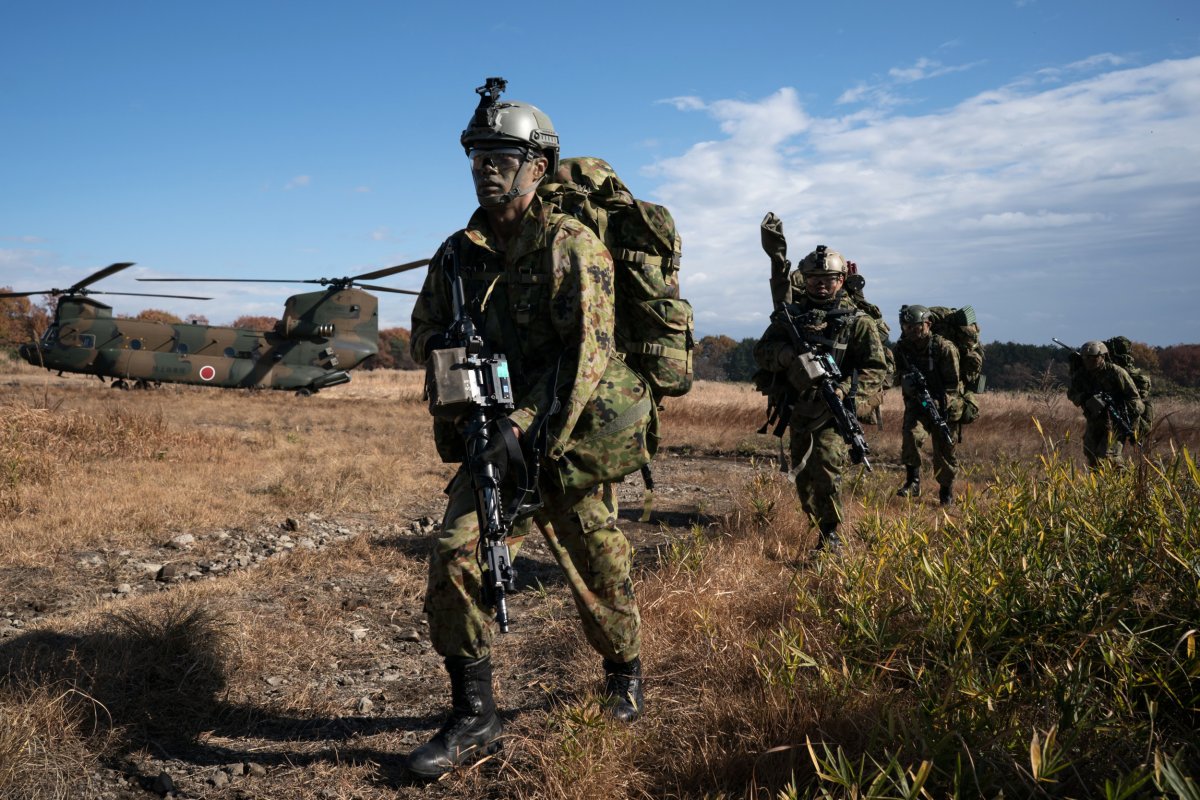
Beijing and Moscow have openly embraced the growing relationship they have defined as a "comprehensive strategic partnership of coordination for the new era." Although China has not expressed support for Russia's war in Ukraine, the two powers are united in their suspicion of Japan's transformation.
During a press briefing Wednesday, Chinese Foreign Ministry spokesperson Wang Wenbin made a direct connection between Japan's evolving military doctrine and its disposal of radioactive water from the Fukushima nuclear plant that was devastated by a 2011 tsunami.
"One would expect Japan to show more sense of responsibility in addressing international concerns as the G7 presidency puts it in the spotlight this year," Wang said.
"Disappointingly and disturbingly, despite the concerns of its Asian neighbors and the international community," he added, "Japan has kept pushing the ocean discharge plan, dramatically increased its defense spending, developed offensive weapons, repeatedly sought to break away from the pacifist constitution and commitments to an exclusively defense-oriented policy, and often sought to honor the militarists and justify their war crimes during World War II."
Reached for comment, Liu Pengyu, spokesperson for the Chinese Embassy in Washington, D.C. told Newsweek that "we hope that the G7 conducts dialogue and cooperation with China and other countries on the basis of equality and respect, instead of adhering to the Cold War mentality, ideological prejudice and 'bloc politics' based on the interests of a clique."
Although Russian charge d'affaires in Japan Gennady Ovechko told the state-run TASS Russian News Agency on Tuesday that Moscow and Tokyo maintain "traditionally deep cultural ties," he also issued a strong warning against the changes to Japan's defense policy.
"The Japanese government is pursuing a policy of dismantling the constitution's pacifist provisions, which the country has been so proud of for decades," Ovechko said. "We feel that Prime Minister Fumio Kishida's administration is rejecting the peaceful progress declared by past generations of politicians and is returning the country to the rails of rampant militarization."
Newsweek has reached out to the Russian Embassy in Washington, D.C. and U.S. State Department for comment.
North Korea, which has also recently bolstered its ties with both China and Russia, has regularly criticized Japan for its military buildup, its longtime alliance with the U.S. and efforts to reconcile with fellow U.S. ally South Korea. This rhetoric has increased since Kishida traveled to Seoul on Monday for a summit with South Korean President Yoon Suk-yeol in order to overcome lingering tensions over Tokyo's imperial history and boost cooperation in line with Washington.
"Japan should not forget that the U.S., which had made hundreds of thousands of innocent Japanese people fall victim to the world's only nuclear holocaust, considers the Japanese archipelago as a war powder magazine and logistic base only," an article attributed to North Korean Foreign Ministry Institute for Japan Studies researcher Kim Sol Hwa read Wednesday.
"If Japan persistently resorts to forming the U.S.-led tripartite military alliance, turning its face away from the reality," the article added, "it will plunge Northeast Asia into instability and finally turn it into a sea of flames, where it will perish."
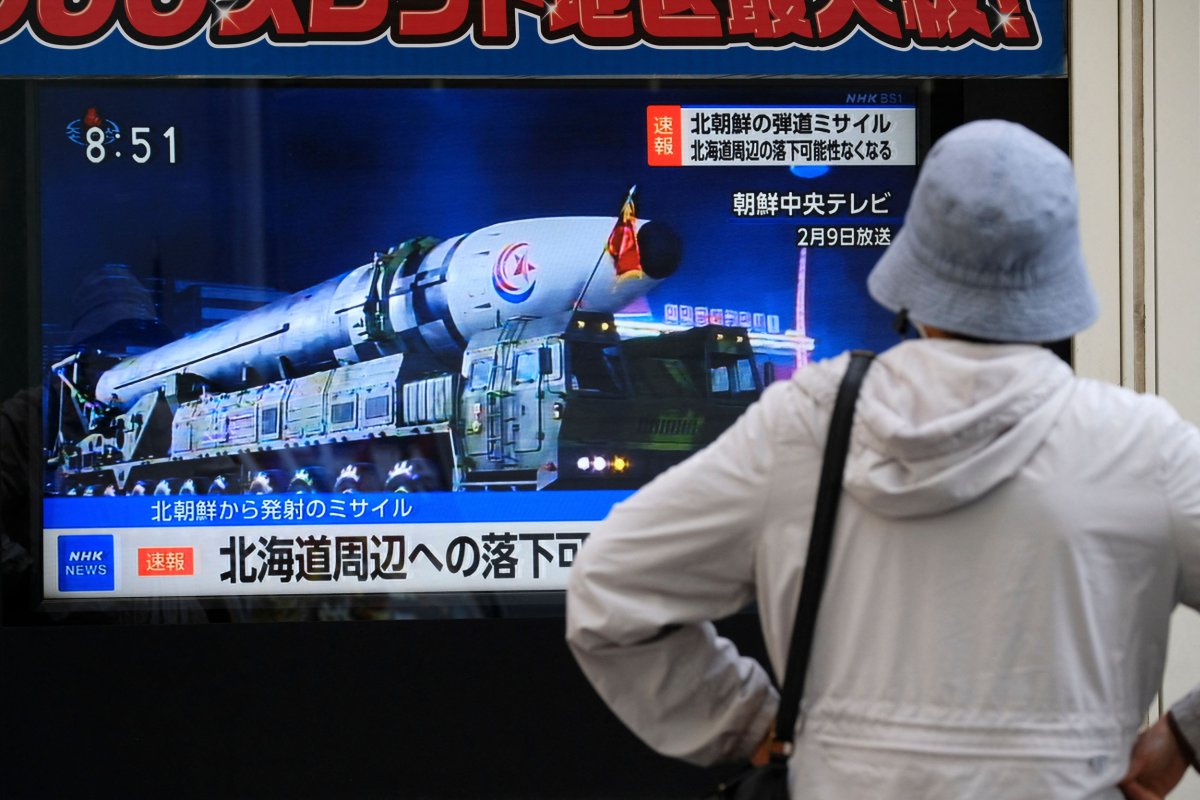
There is another battleground where rivalries in the Asia-Pacific are playing out. Japan has set out to spread its vision of a "Free and Open Indo-Pacific" beyond strictly U.S.-aligned nations, especially in Southeast Asia, where Beijing and Moscow continue to enjoy strong influence.
"The national interests of the nations in the region or globally can best be served and protected by maintaining and enhancing the liberal international order," Kanehara told Newsweek. "For that purpose, the best way is to keep the unity of the Western powers and to expand the liberal order into the Global South."
The Japanese official with whom Newsweek spoke agreed, noting that the countries of the Global South "are important players as we try to tackle and to solve the Ukraine issue and they have been influenced so much by the war, in many cases in terms of energy prices and so forth."
"We have to take note of their concerns and discuss with them," the Japanese official said.
This too will be a focus of the G7 summit and served as motivation for inviting representatives from Southeast Asia, Latin America and Africa. Though Japan's history continues to play a role in defining its relationship with countries in the region, its post-World War II economic growth and more recently developing security role are seen by Tokyo as important assets for engaging with Global South countries caught in the crosswinds of great power competition.
"I think Japan is in a unique position to actually do so and chair a meeting like this, because we are the only one among the G7 members from Asia," the Japanese official said. "We've had a long and friendly history with many of these countries."
Uncommon Knowledge
Newsweek is committed to challenging conventional wisdom and finding connections in the search for common ground.
Newsweek is committed to challenging conventional wisdom and finding connections in the search for common ground.
About the writer
Based in his hometown of Staten Island, New York City, Tom O'Connor is an award-winning Senior Writer of Foreign Policy ... Read more
To read how Newsweek uses AI as a newsroom tool, Click here.





